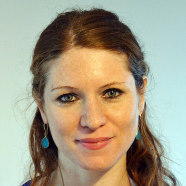
Carolina was born in Patagonia, Argentina. She received a Masters and Ph.D. in Biology from the University of Buenos Aires. During her Ph.D. in the lab of Dr Fernanda Ceriani, she identified genes underlying neurodegeneration, ultimately affecting circadian behaviour in Drosophila. She did her post-doctoral research in the Centre for Neural Circuits and Behaviour at the University of Oxford, where she studied the genetic and neural basis of innate sexual behaviours in Drosophila. As a BBSRC researcher co-investigator with Prof. Stephen Goodwin at Oxford, she studied how the brain differs between the sexes, and how these differences explain distinct behaviours shown by male and female flies. Carolina won a Birmingham Fellowship to start her independent research group in April 2018 at the University of Birmingham and become a Lecturer in Neurobiology in 2021.
Animals must make crucial behavioural choices on a minute by minute basis to survive in a changing environment. A long-standing enigma is, how are alternative options evaluated in the brain and specific actions prioritized? We know that cues conveying external information (e.g., access to food, potential dangers) and internal state (e.g., fear, hunger) guide behavioural choices. However, how the brain prioritises specific actions remains unknown.
Our lab addresses this fascinating question using the fruit fly model, Drosophila. Fruit flies exhibit complex behaviours that are controlled by a relatively small brain. Thanks to sophisticated tools available in the fruit fly, we can interrupt specific genes, as well as visualise and manipulate individual neurons with great resolution. With these tools, we can study how the fly brain responds when there are conflicting options available, and how it chooses amongst them. By studying how the brain makes decisions at a genetic, cellular and circuit level, in an accessible experimental system, we aim to reveal fundamental principles underlying behavioural choices that might be present across species.